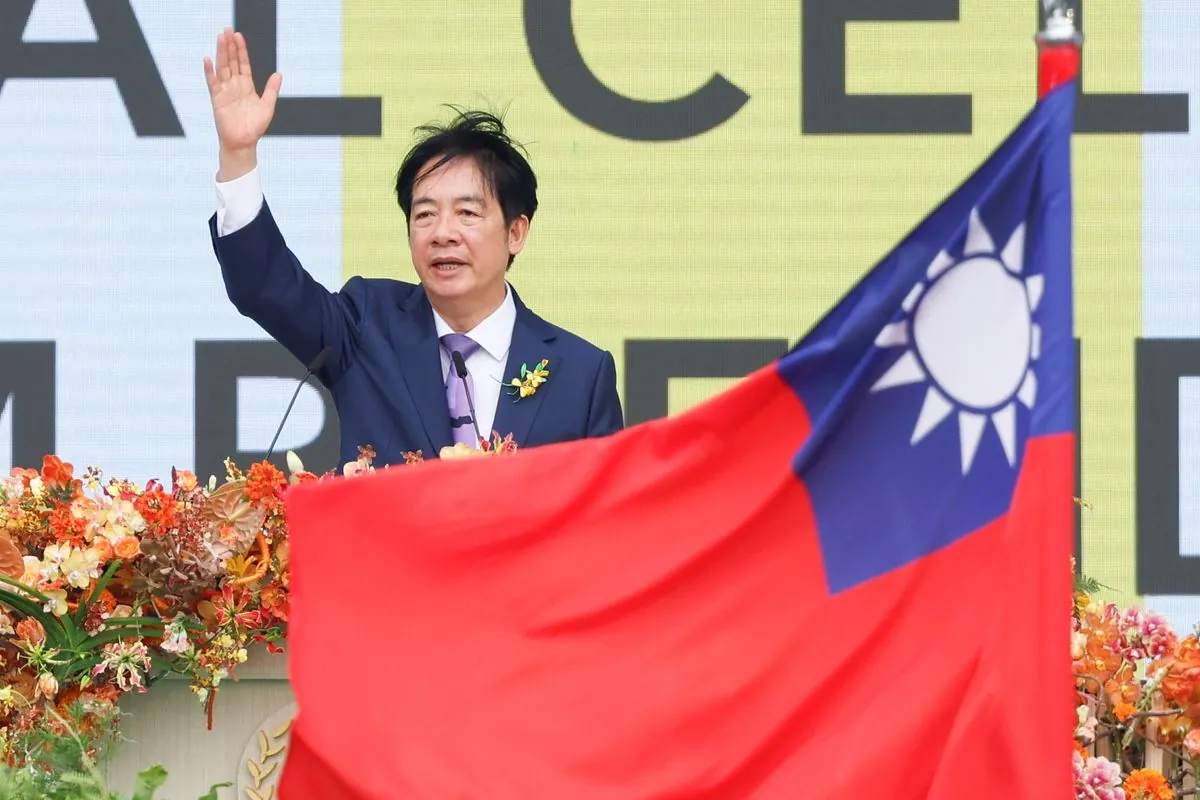In a bold assertion of Taiwan's historical legitimacy, President Lai Ching-te has stated that the island's political roots predate those of mainland China. This declaration, made during a pre-national day concert, underscores the ongoing tensions between Taiwan and the People's Republic of China (PRC) over the island's sovereignty.
Lai Ching-te, who assumed office in May 2024, emphasized the impossibility of the PRC becoming Taiwan's "motherland" due to the significant age difference between the two political entities. The Republic of China (ROC), which is Taiwan's official name, traces its origins back to the 1911 revolution that overthrew the last imperial dynasty. This historical context places the ROC's founding in 1912, making it one of the oldest republics in Asia.
The president highlighted that while the PRC celebrated its 75th anniversary on October 1, 2024, the ROC is set to commemorate its 113th birthday on October 10, 2024. This comparison serves to reinforce Taiwan's claim to a longer political lineage.
Lai stated, "One of the most important meanings of these celebrations is that we must remember that we are a sovereign and independent country." This assertion aligns with Taiwan's stance of self-governance, which has been in place since 1949 when the republican government fled to the island following the Chinese Civil War.
The historical complexity of Taiwan's status is further illustrated by several facts:
- Taiwan has been self-governed since 1949 but has never formally declared independence.
- The island's population of approximately 23 million people has developed a distinct identity.
- Taiwan is not a member of the United Nations, having been replaced by the PRC in 1971.
- The US Taiwan Relations Act of 1979 provides the legal basis for unofficial relations between the US and Taiwan.
Lai's statements come against the backdrop of ongoing tensions in the Taiwan Strait, which separates the island from mainland China by about 180 km (110 miles) at its narrowest point. The Taiwan Strait Crisis of 1995-1996, which involved missile tests by China near Taiwan, serves as a reminder of the potential for military escalation in the region.
While Taiwan has developed into the 22nd largest economy in the world by nominal GDP and is home to a crucial semiconductor industry producing over 60% of the world's semiconductors, its international status remains contentious. The PRC continues to view Taiwan as its "sacred" territory, a stance reiterated by Chinese President Xi Jinping in a recent national day speech.
Lai Ching-te's assertion of Taiwan's older political roots is not his first challenge to Beijing's claims. In a previous statement, he suggested that if China's claims on Taiwan were about territorial integrity, it should also reclaim land ceded to Russia by the last Chinese dynasty in the 19th century.
As Taiwan prepares for its national day celebrations, the island's unique cultural and historical heritage is highlighted by institutions such as the National Palace Museum, which houses one of the world's largest collections of Chinese art and artifacts. This rich cultural backdrop serves as a testament to Taiwan's complex relationship with its historical roots and its ongoing struggle for international recognition.
The upcoming national day address by President Lai Ching-te on October 10, 2024, is anticipated to further elaborate on Taiwan's position regarding its sovereignty and its relationship with mainland China, potentially shaping the future of cross-strait relations.
